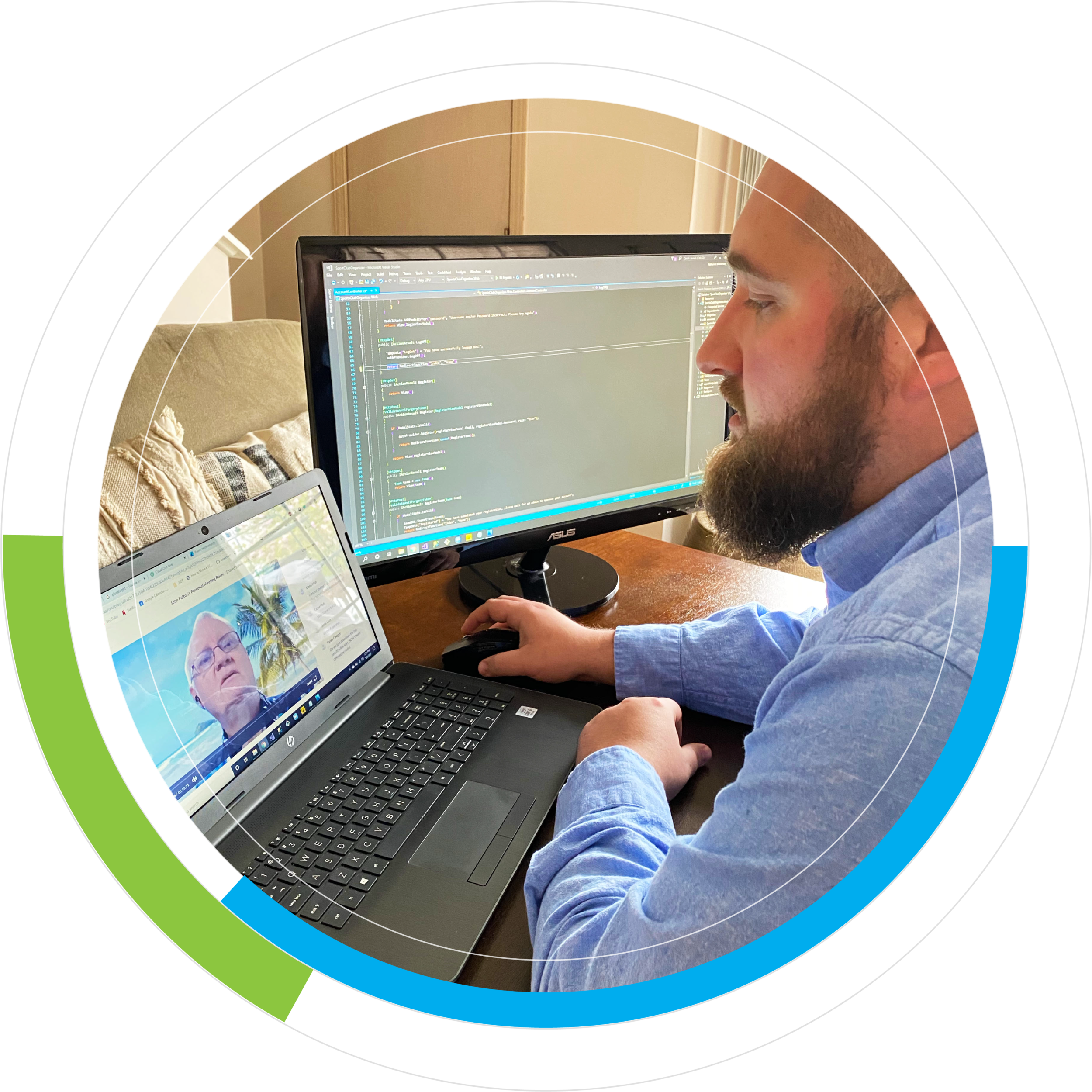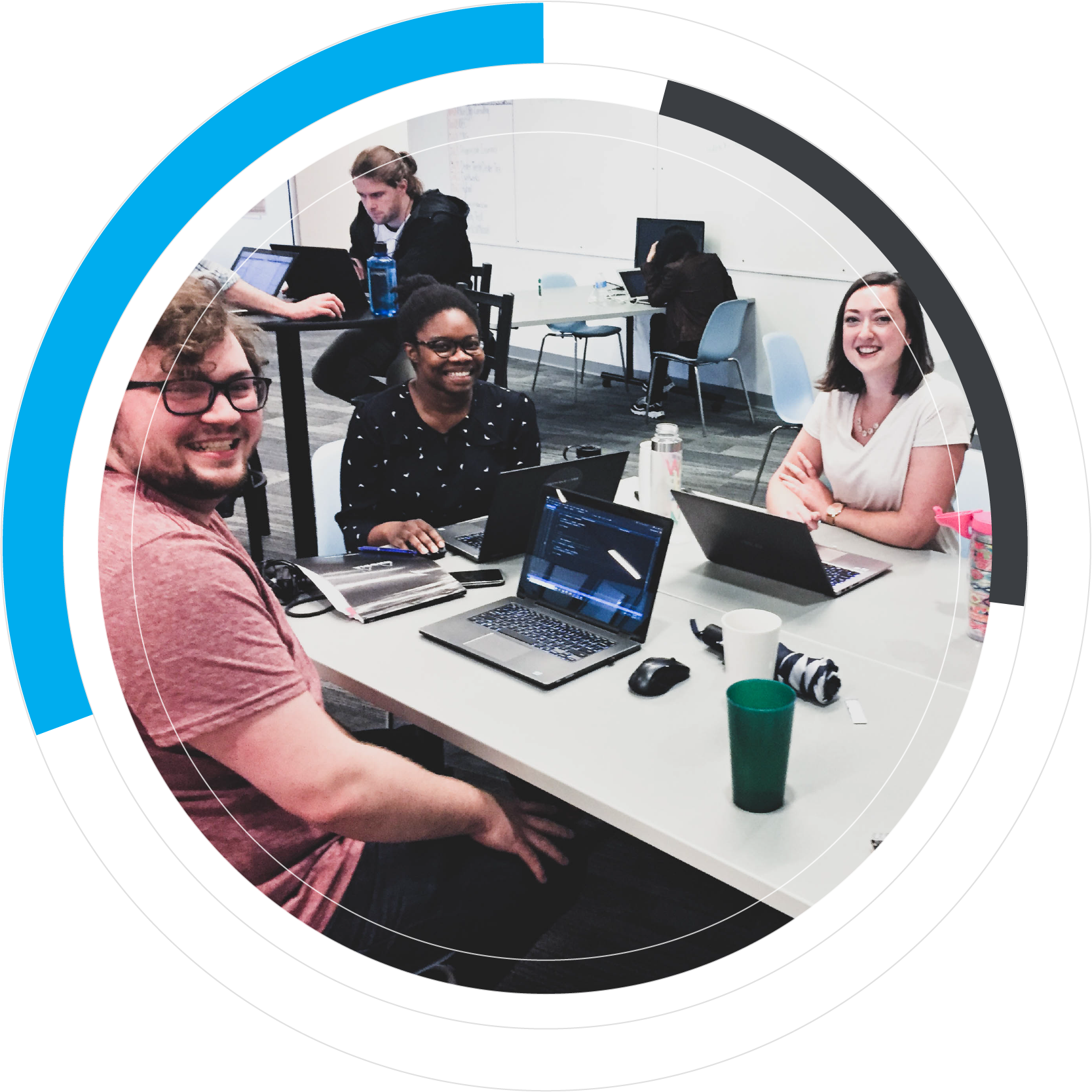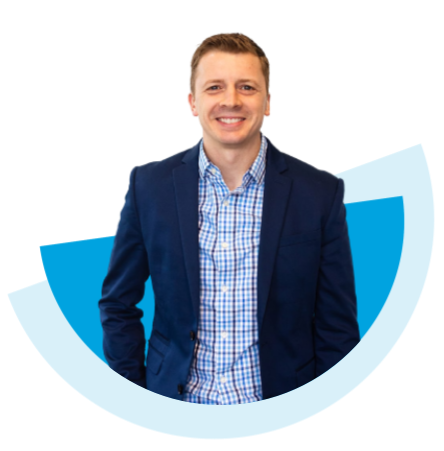Bootcamp Curriculum: An Inside Look at Tech Elevator’s Capstone Projects

How does our coding bootcamp curriculum transform you into a software developer?
We shared what students can expect during their first week at Tech Elevator in a previous article. The article gave a day-by-day breakdown of what students learn and experience throughout the program.
This article details what students can expect from one of our curriculum’s most essential elements—the Capstone Projects. Keep reading to learn why they’re crucial to each student’s success.
Capstone Projects at Tech Elevator: A Bootcamp Curriculum Breakdown
A full-stack developer possesses the skillset to develop front-end features, what the user sees or interacts with, and can also transition to the back-end where code drives logic and decisions that a user never sees. Full-stack developers may build new features or enhance existing features in different types of applications—websites, employee-facing systems applications, administrative interfaces, or even mobile apps.
Tech Elevator’s bootcamp curriculum ensures you’re ready for full-stack development at a junior level. You’ll learn how to code visual interfaces with HTML, CSS, and JavaScript, make applications communicate with each other using Java or C#, and use a language called SQL to access databases. Along the way, you’ll work on three capstone projects that prepare you for real-world development and experience what it’s like to work with other developers.
Capstone Project 1

The first capstone project covers concepts learned in weeks one through four: variables, data types, conditional and iteration logic, object-oriented programming concepts, and unit testing. Students team up with a partner to build a program from scratch.
At the end of the capstone, the instructor meets with each group and reviews their code. During the code review—which lasts thirty minutes—the instructor poses questions, provides critiques, and encourages students to explain their code. While each group has the same project, the final implementation is always unique.
The review session aims for students to receive feedback from someone with professional development experience. The instructor provides suggestions that make the student’s code easier to read or have greater flexibility.
Capstone Project 2
Like the first, the second capstone covers concepts and skills learned in weeks five through eight. Students learn how to store and access data from a database using SQL and make multiple programs communicate over a network using HTTP.
Capstone Project 3 (Final)
We refer to the preceding projects as “mini” capstones because they cover a limited selection of concepts. The final project encapsulates everything that students learn throughout the program.
In the final capstone project, which occurs in the last two weeks of the program, students work in groups of four to create an application that addresses a specific need. Each group receives a different project to thoroughly test what they’ve learned in the preceding twelve weeks.
Here’s how the final capstone project works:
-
Workgroups are assigned their project.
-
Each group of students represents the development team, while a Tech Elevator staff member is the product owner or customer. Their instructor acts as a scrum master and helps the development team remain on track.
-
The development team meets with their customer multiple times throughout the capstone to understand customer needs and produce a working application that meets their requirements.
-
The development team presents multiple demos of their application to their customer for feedback and approval.
Beyond building an application, a part of this capstone is to experience what it’s like to collaborate with customers and other developers to create a product from scratch.
What can students create after completing the program?
We’ve seen groups create projects to track family meals, support virtual stock trading, organize outings with other users, and design a garden. The list of projects goes on and on. Once students successfully learn the full bootcamp curriculum and complete all capstones, they can create a fully functional application.
If you’re curious about the types of applications past students have built, here are a few examples:
Harvest Assist App
Foxtrot Tools App
Sarnova App
Where to Start: Test Your Aptitude!
Do you have an aptitude for software/web development? A coding career can be a good fit for people who enjoy solving problems, building things, and collaborating with others. Take our free Aptitude Test to see if you have what it takes to become a software developer—no coding required.
If you’re interested in learning more about Tech Elevator, we’d love to meet with you. Schedule a short info session with our admissions team here.

Written by Josh Tucholski, Tech Elevator’s Director of Curriculum & Instruction